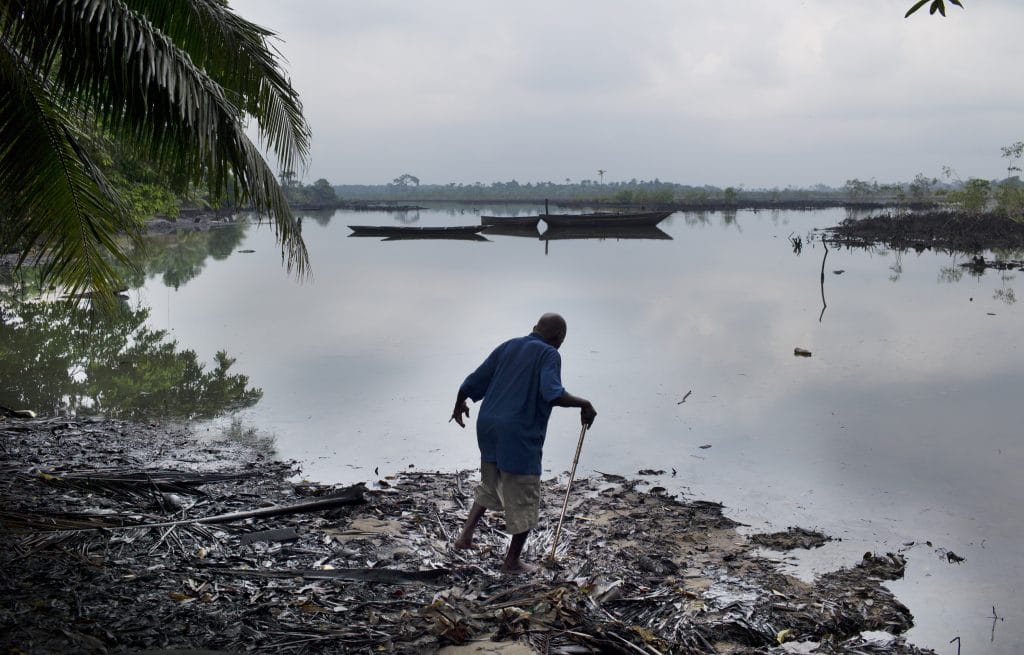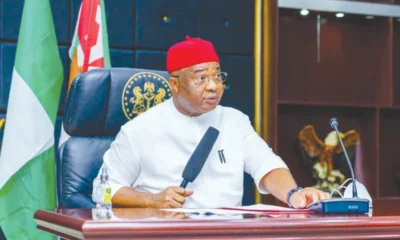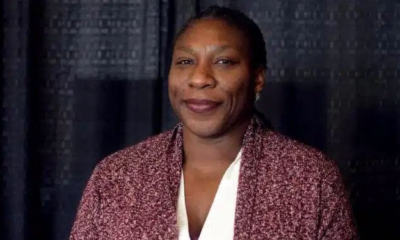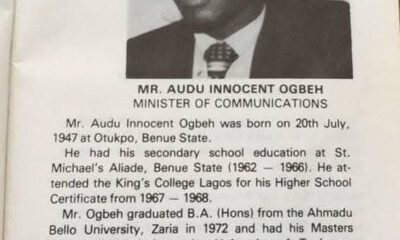News
Effects of oil spill in Niger Delta reason for radicalism, resentment – Prof Owolabi

A University Don, Professor Abdulrazaq Owolabi Abdulkadir, of the University of Ilorin, has identified the major cause of resentment in the Niger Delta of Nigeria.
He also noted the negative effect of the situation on the blue economy policy of the federal government, saying the harmful effects of the oil spill on the marine environment, has increased the tension between people living in the region and the multi-national oil companies operating in the areas.
Professor Abdulrazaq, made these submissions while delivering the 280th inaugural lecture of the University of Ilorin, on Thursday titled “Radicalism, Rascality and Resentment In The Ebb Of Marine And Blue Economy.”
The Professor of International Maritime Law, Department of Private and Property Law, further noted that the high level of distrust between the people and the government on one hand and the people with multi-national companies is aggravating the already tensed situation as displayed by the radicalism, rascality and resentment within the Nigerian maritime domain.
“Invariably, the systemic causes of radicalism, rascality and resentment must be fully addressed in order to achieve a long term decrease in illicit maritime activities.”
To tame the scourge of radicalism, rascality and resentment bedeviling proper exploration of the blue economy, Professor Abdulrazaq, recommended among others, that “military capacity should not often be invoked but rather good governance and political regime are the main determinants of the non pervasiveness of piracy in the region.
He also called for re-orientation of the Nigerian armed personnel, such as the marine police and naval officers to appreciate the onerous responsibility of upholding the integrity and oath of office in discharging their responsibilities.
“Corrupt practices by these personnel are generally responsible for some avoidable importation of arms, ammunition and illegal unreported and unregulated fishing.”
According to Professor Abdulrazaq, “there is need to amend the provision of Sections 2 and 22(5)(m) of the Carbonate Act 2003 to specifically include oil drilling rig for the purpose of paying two percent surcharge.
“This is because shippers or investors have been taking advantage of this lacuna in the Act,” he added.
News
Man in shock after lady he lodged with in a hotel in Abuja flees with his car and other valuables

A Nigerian man is currently in shock after a young lady identified as Precious Chinyere , whom he took to a hotel in the Asokoro area in the FCT for a romantic getaway allegedly fled with his car and other personal belongings on Thursday, February 5,
The distraught man and Precious had visited the hotel and opted for a short time stay. Things took a different in the evening when the man noticed Precious had left the hotel room without notifying him and took along with her some of his personal belongings including phones and laptop and also his car.
The victim immediately reported the incident to the police.
When contacted, the spokesperson of the FCT police command, SP Josephine Adeh, told LIB that the matter is currently being investigated and that efforts are being made to apprehend the suspect.
News
US Reacts As De@th Toll In Kwara Terror Attacks Hits 200

The United States Mission in Nigeria has condemned the k!lling of more than 200 civilians in recent attacks on communities in Kwara State.
Recall that terrorists launched de@dly attacks on Woro and Nuku communities in Kaiama Local Government Area of the state on Tuesday night, k!lling unsuspecting citizens.
It was gathered that the gunmen invaded the villages, opened fire on residents and burned homes.
According to reports, the de@th toll from the unfortunate incident hit 200 on Thursday night.
Reacting, the US Mission Nigeria condemned the k!lling via a post on its official X handle.
The post reads, “The United States condemns the horrific attack in Kwara state in Nigeria, which claimed the lives of more than 160 people, with the de@th toll still unconfirmed and many still unaccounted for.
“We express our deepest condolences to the families of those affected by this senseless violence.
“We welcome President Tinubu’s order to deploy security forces to protect villages in the area and his directive to federal and state officials to provide aid to the community and bring the perpetrators of this atrocity to justice.”
News
“I’ll never settle for a barber, yahoo boy or a poor man” — nail tech’s list of men she says she can’t marry sparks reactions online

A Nigerian nail technician has set social media talking after openly listing the kind of men she says she can never settle for.
In a now-viral post, she stated clearly that she refuses to “settle for less” and went on to mention professions and traits she considers a no-go area.
According to her, she can never settle for a barber, an aza man, a yahoo boy, a mechanic, an actor, a laundry man, a hype man, or a plumber. She also added that she wouldn’t marry a man with a high body count or a poor man.

-
Business1 year ago
US court acquits Air Peace boss, slams Mayfield $4000 fine
-

 Trending1 year ago
Trending1 year agoNYA demands release of ‘abducted’ Imo chairman, preaches good governance
-

 Politics1 year ago
Politics1 year agoMexico’s new president causes concern just weeks before the US elections
-

 Politics1 year ago
Politics1 year agoPutin invites 20 world leaders
-

 Politics1 year ago
Politics1 year agoRussia bans imports of agro-products from Kazakhstan after refusal to join BRICS
-
Entertainment1 year ago
Bobrisky falls ill in police custody, rushed to hospital
-
Entertainment1 year ago
Bobrisky transferred from Immigration to FCID, spends night behind bars
-
Education1 year ago
GOVERNOR FUBARA APPOINTS COUNCIL MEMBERS FOR KEN SARO-WIWA POLYTECHNIC BORI













